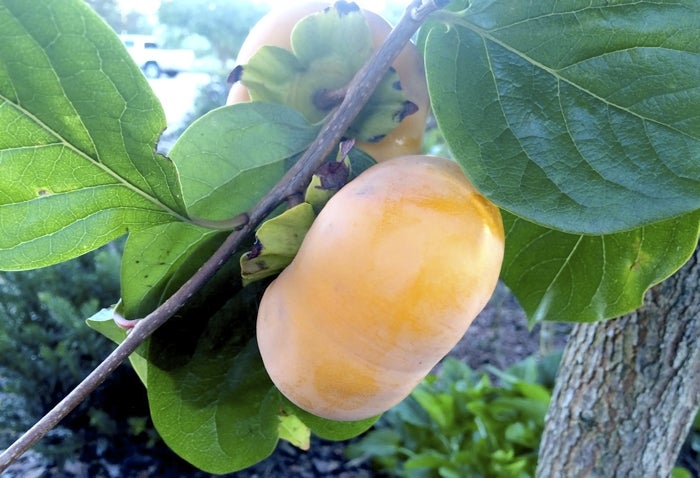Weather leads to questions on soggy ground, persimmons
Published 12:00 am Friday, November 13, 2015

- Cooperative Extension Oriental persimmons are larger, sweeter and firmer than their American cousins.
By Danelle Cutting
Rowan Cooperative Extension
We have had lots of rain and wind. Many of the ponds have filled, and some areas have flooded. Even though the weather has been rough, our office still receives calls. Here are a few from this past week.
Question: Will all of this water kill my plants? I still have areas that are under water.
Answer: I hate to say it depends, but in this case, it does. Some soils can quickly absorb the moisture, and you will not have standing water. But, some soils do not. If the water sits for a considerable time, sometimes the plants are not able to survive; their roots drown. Often, I recommend that if you have an area that will typically have standing water, you may want to choose plants that can tolerate “wet feet.” These plants are able to handle moisture for longer periods of time. Some of these plants are found in wetlands, some are not. It all depends. If you are considering adding some of these plants to your area, I recommend a soil sample. Give me a call so we can discuss your situation. You may just need to amend your soil instead of creating a new habitat.
Question: What do the Asian persimmons taste like? Do they taste the same as the ones in the wild? Do I have to wait for a frost before I can eat them?
Answer: I receive this question a lot. I also get asked about the persimmon seed winter predications, but that’s another article. The persimmon you mention is actually called an Oriental Persimmon, and there are lots of varieties. Some have a deep orange color, and some have a reddish color. They have a unique taste, and Asian cultures eat these persimmons fresh. They are sweet with a crunch. They go great in a salad, and many of the varieties are seedless. They do not have the astringent/bitter taste of the American persimmon. They can be harvested when they have changed into their bright orange or red color and have a slight give when pressed. You can use them in puddings and other dishes but remember, the fruit is fairly crisp, so your persimmon pudding recipes will be slightly different.
Question: Should I put any fertilizer on my plants before winter?
Answer: For trees and shrubs, I recommend fertilizing in the early spring and after our first killing frost. We have had one frost, but it was not as hard as usual. This is where things can get sticky. If we fertilize and then have a warm winter, followed by a damaging frost, then we can have issues. Using fertilizer that has nitrogen in it can encourage the plant to grow tender young growth. This is not good when we have a warm winter followed by a hard frost. This young tender growth has not hardened off and is very sensitive to frost. It is almost like an open wound; when a frost hits, it can damage the new growth and the plant. So, sometimes it is best to fertilize your trees and shrubs in the spring to avoid a possible damaging situation.
If you have questions concerning your garden, lawns, or pests in the garden, call your local agent, Danelle Cutting, at 704-216-8970.




